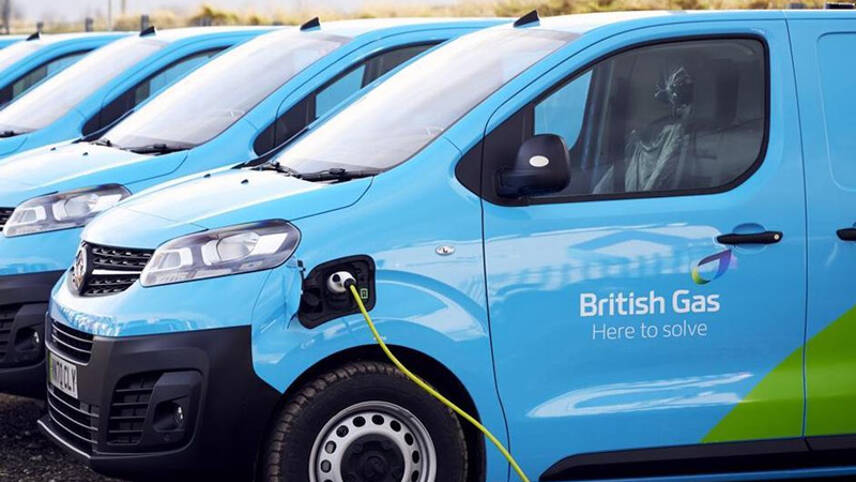Register for free and continue reading
Join our growing army of changemakers and get unlimited access to our premium content

Image: Centrica
The ‘Optimise Prime’ project was first launched in 2019 by a consortium spearheaded by UK Power Networks (UKPN) and Hitachi Europe. The first EVs trialled under the project then hit the road in 2021.
The aim of the project was to identify, and work to overcome, the common barriers to the adoption of EVs for commercial uses, given that businesses in the UK account for almost six in 10 new vehicle sales each year. Centrica, Royal Mail and Uber were the fleet operators participating, with the trial also convening experts in electricity grids, charging infrastructure and planning.
With the official end date for the £34.6m project now mere weeks away, the participating organisations have presented their final set of findings. It was confirmed that more than 8,000 EVs were trialled under Optimise Prime.
Centrica’s British Gas fleet trialled home charging for staff, while Royal Mail assessed charging at depots. Uber, meanwhile, assessed multiple charging options including public charging out-of-home.
The overarching conclusion is that EV technologies have improved, in recent years, to the extent that there are now models available to suit all three types of fleets covered in the trial. Range anxiety relating to the capability of the vehicles was not a problem.
However, range anxiety is now arising because the growth of the UK’s EV stock is greatly outpacing the installation of charging points – particularly publicly available points. Optimise Prime organisers have stated that the average London Borough will need to install more than 3,000 more charging points by 2025, rapidly accelerating deployment rates.
The UK Government last year published a flagship EV Infrastructure strategy, outlining a total of £1.6bn of funding for public charging points to be spent through to 2035.
The Optimise Prime trials also emphasised the importance of behaviour change in delivering a successful EV rollout within a fleet. Drivers will need training on not only how to operate an EV, but information about any changes to their daily working pattern to account for charging.
Hitachi Europe has already published a ‘Fleet Electrification Guide and Operating Model’ last November, outlining business needs, site constraints (both physical and electrical) and the management of changes to business processes. The final results and datasets from Optimise Prime will be published as an open-source resource by UKPN shortly.
Smart charging benefits
Operators of EV fleets are already reporting benefits such as reduced operating and management costs, given that EVs have fewer moving parts than internal combustion engine (ICE) vehicles and with the current high costs of petrol and diesel taken into account.
Earlier this week, Uber expanded its partnership with Hertz to Europe following success in North America, pledging 10,000 EVs for London and up to a further 15,000 in other capital cities. Hertz vehicles on offer to Uber drivers will include Tesla and Polestar models. The firm reported last summer that it is making significant savings on vehicle maintenance costs with its Tesla fleet, recording maintenance costs per vehicle of 50-60% lower than models with internal combustion engines. Then, in a subsequent earnings call, Hertz reported a 12% year-on-year uptick in profits, citing fleet electrification as a contributor.
Optimise Prime has concluded that there will likely be additional financial benefits in the future, as smart charging becomes the norm. Organisers have stated that, by charging fleets only when needed and outside of peak times, fleet operators can provide flexibility to the grid. New Government plans are in the works to better reward motorists adopting this approach, and to ensure that such an approach becomes the norm, with new charging technologies coming with built-in ‘smart charging’ functions as standard.


Please login or Register to leave a comment.